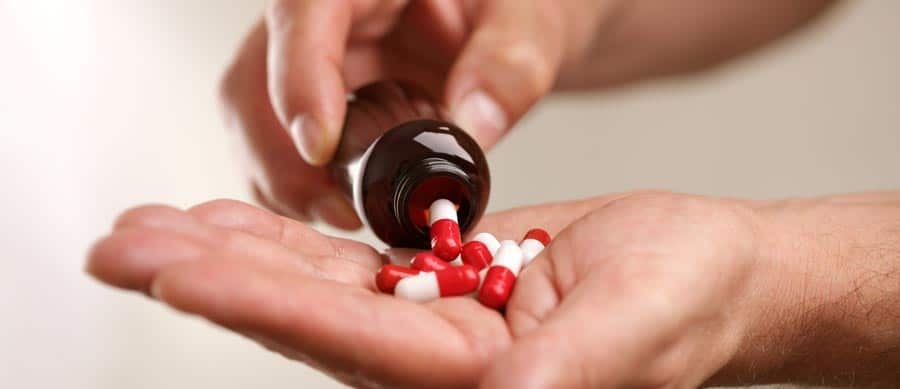While browsing the Briarwood Detox Center blog, you may come across terms like “dependence,” “addiction,” and “tolerance” often, without truly understanding what they mean or how they relate to your current situation. In this blog, we’ll discuss drug tolerance so you can get a better idea of what you or your loved one is experiencing and how medically-assisted drug detox can help. To get started, let’s first define drug tolerance.
Table of contents
What Is Drug Tolerance?
The National Institute on Drug Abuse (NIDA) briefly defines drug tolerance as, “a state in which an organism no longer responds to a drug.”1 To expand upon that, drug tolerance develops when a person no longer responds to a drug in the same way they used to. As a result, the person must take a larger dose of the drug to achieve the same effects they initially experienced when using it.
If we were to take a look inside the body, we could see this happening on a cellular level. For example, when a person uses a drug like morphine, the morphine will bind to opioid receptors in the brain, spinal cord, and other parts of the body and activate it. Over time, as the person continues to use morphine, their body will adjust to the presence of the drug and the effects of the morphine will be severely diminished. At this point, the drug user will have to take a larger dose of the morphine to feel the same desirable effects they are used to.
Although different types of drugs will affect the human body in different ways, the concept of developing a tolerance remains the same. Over time, the body will adjust to the drug and become desensitized to its effects.
To be clear, tolerance is not the same as dependence or addiction, although many substances that cause tolerance can also cause addiction. Additionally, many people who suffer from addiction also have a drug tolerance, which drives them to use more drugs and seek out more potent substances.
How Does it Develop?
First and foremost, there are two types of tolerance to consider: physiological tolerance and behavioral tolerance.2
- Physiological tolerance develops with long-term drug use. As a person continually abuses a drug, his or her body will grow accustomed to its presence and adapt. Once the body is desensitized to its effects, the person will feel a physical need to take more of the drug in order to feel the normal effects they are used to.
- Behavioral tolerance involves a person’s belief that they cannot function normally unless they take drugs. A person can easily become accustomed to the way the drug makes them feel and compensate to appear sober to others. Tolerance is just as much behavioral as it is physiological.
Both physiological and behavioral tolerance can develop as a result of repeated drug use. Over time, individuals who regularly abuse drugs on a long-term basis are much more likely to develop drug tolerance than those that don’t.3 Acute drug tolerance may also develop with repeated drug abuse over a short period of time. This frequently happens with drugs like cocaine.
The only way to avoid developing a tolerance to drugs is to not use them or to only use prescription medications as prescribed by your doctor. Any other type of drug use may lead to tolerance and dependence.
Why Is Drug Tolerance Dangerous?
Drug tolerance can be extremely dangerous because it drives people to use large doses of drugs. This increases their risk of overdose and ultimately, death.
How Can Drug Detox Help People Overcome Tolerance and Addiction?
After weeks, months, and years of continued drug abuse, your body will hold on to toxins left behind by all of the substance use. The drug detox process cleanses your body of all these toxins so you can get back to a stable and sober state.
As you detox and your body cleanses itself of those harmful substances, you will experience what is known as drug withdrawal. This typically involves uncomfortable or painful physical symptoms, such as:
- Insomnia
- Sweating
- Muscle aches
- Shakiness
- Nausea
- Vomiting
- Diarrhea
Medically-assisted detox is recognized as the best type of drug detox for those who wish to experience the fewest uncomfortable symptoms. Although the severity of withdrawal symptoms will vary based on the person’s drug abuse history and current health status, medically-assisted detox will minimize the physical and psychological effects of withdrawal and gradually bring clients down into a state of sobriety. This type of detox typically provides the safest and most comfortable detox experience.
It’s important to note that upon completion of detox at a detox center, a person’s drug tolerance will be gone, which is wonderful, but it also has the potential to be very dangerous.
If a person decides to use drugs again after completing detox, he or she will most likely default to their previous regular dose. Unfortunately, that dose may be way too large for their body to handle since their tolerance has been broken. As a result, people who complete detox and use drugs again immediately may be at much higher risk for overdose and death.
For this reason, many addiction treatment professionals at detox centers will recommend continued addiction treatment with inpatient or outpatient drug rehab. Drug rehab will give a person the tools they need to stay sober for good and develop healthier coping mechanisms to deal with stressors without defaulting to drug and alcohol abuse.
At Briarwood Detox Center, we help clients break their tolerance, dependence, and addiction and provide a firm foundation for continued sobriety. If you or a loved one is interested in learning more about our medically-assisted drug and alcohol detox programs, please call (888) 857-0557 today.
References:
- https://www.drugabuse.gov/publications/teaching-packets/neurobiology-drug-addiction/section-iii-action-heroin-morphine/6-definition-tolerance
- https://www.sciencedirect.com/topics/pharmacology-toxicology-and-pharmaceutical-science/drug-tolerance
- http://www.merckmanuals.com/home/drugs/factors-affecting-response-to-drugs/tolerance-and-resistance-to-drugs

